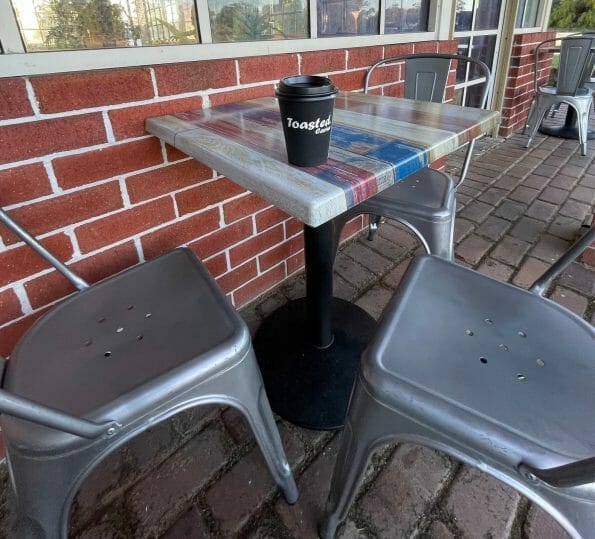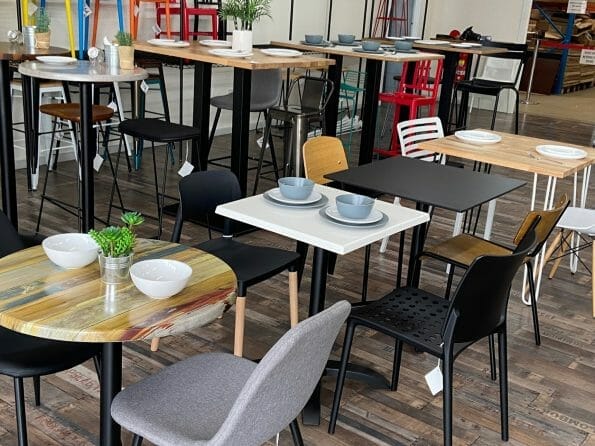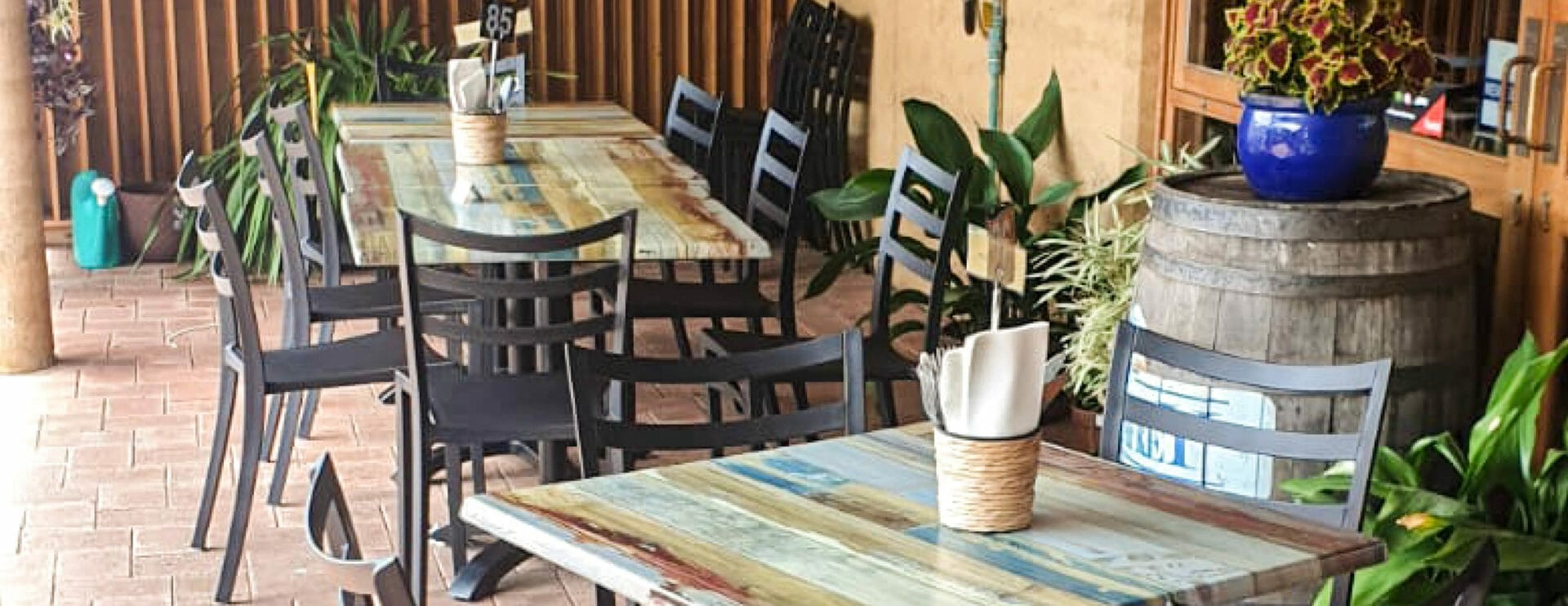What you need to know about opening a Café
Cafés are very much a part of our daily lives. For most, lingering in a favourite café signifies a return to a semblance of normality. Nothing beats a cosy, aromatic atmosphere, whether you’re meeting a friend or working on your laptop. Suppose you’re thinking of opening a cafe as your primary source of income or investing in a side gig that will boost your earnings. Success in the cafe business is dependent on many factors – the most critical consideration should be a carefully designed business plan. In the following, we will discuss the top 5 factors when starting your cafe on a budget.

Why do you want to own a cafe?
The most important question to ask yourself is, why: Why are you drawn to opening a food and drink business in the first place? It might seem trivial, but identifying your primary motivation might get you where you want to be.
However, entering into any business, especially hospitality, requires a lot of soul-searching. You’ll benefit from solid, realistic thinking around your skills, the time you’d be able to give to the business and the funds necessary to carry your café through its initial stage and, inevitably, quieter periods.
What is your cafe all about?
If you’re a newbie to the food industry, consider starting small, whether you’re an active part of the daily run of the business or a sleeping partner. Cafés tend to have a more laid-back, casual vibe. The atmosphere you create and the individuality you stamp on your café and the cafe furniture can range from urban chic to homely and inviting. There are those hybrids that combine café culture with a fully-fledged restaurant model. Restaurants demand expertise, knowledgeable staff and quick turnaround time. But you are in it for the long run, and opening your own café has been your dream for a long time.
Opening a café in a local suburb, using your own unique style and developing a great menu can be rewarding and lead to new friendships and a loyal customer base. Many cafes are built on a high profile reputation that brings in new customers and signifies a successful business. Ultimately, it’s the payoff for your hard work.

To Franchise or Not To Franchise?
Often, prospective business owners, especially those entering the food game for the first time, turn to the franchise model as a viable option. It offers an all-in-one solution: you get everything done for you – backing from a well-known brand, premises, equipment, shop-fitting, a point-of-sale system, a list of suppliers and a marketing plan. While your financial institution and the franchisor will require collateral and a guarantee before they back your venture, keep in mind that you will be handing over a percentage of your profits to the franchising company every month. Established franchises often give you less choice when it comes to selecting premises.
As with the kitchen layout, the proper and functional equipment provided through a franchise is usually very well thought out and proven successful over time. In many cases, with a Cafe Franchise, training is provided, and while you may gain confidence over preparation techniques, the menu might be extensive. You may be bound to use the company’s suppliers, which frees up your time to focus on excellent customer service. Added to the overall price tag is the cost of marketing. Franchisors market their chains widely, and your cafe would benefit from this brand awareness.
In summary, there are many benefits to starting with a franchise option, but for those who dream of their individualistic cafe setup, it might not be the right choice.
What does starting small mean?
Starting small could mean finding premises in an area experiencing growth without the premium price tag to accompany it. Settling on a manageable business allows you to ease into the learning curve and implement changes or amendments without the constraints associated with harsh contrasts. Take staff requirements into account, and project whether the 10 or 15 % rise in rent annually will allow you room to survive.
Who are your cafe’s clientele and competitors
One of the most important things to consider when you’re starting up a café is to get as clear a picture as possible of who your customers are. Does the area predominantly attract students or business people, or a mixture? Identifying these factors helps you develop your image and decide on the type of café you will open. This research is invaluable to do before you decide to open a business. Which time of day is the busiest; is there a steady stream of people in the area, or do they appear in spurts? Do people frequent the locale after-hours or not?
Having an obvious idea of who you’re attracting will help you plan menus, decide on your décor and price competitively. Take your competitors into account. How do they serve their customers, what’s on the menu, what do they charge? Find out what’s most popular in terms of food and beverage choices. Is there an area within the service landscape that you might have a leg up on and position yourself as unique and worth visiting? How do they market themselves, and to whom?
Don’t rely on statistics that you find on the internet to help you make a decision. Spend time in the area you’re targeting, choose different times to visit, take note of the people in the environment. Look at other stores in the area. Talk to people who aren’t a part of the food business. Established business owners often prove to be the best sources of information. It is also wise to check the parking facilities. Is it easy to access your café or not? Are there local attractions nearby, or is the location perfect for passing trade? Both can lead to more customers and help your business thrive.
When are you ready to open?
Whatever your ambitions, never rush into a decision hastily. Your marketing campaign should start before you open your doors. It needn’t cost you the earth to advertise your business if you use Social Media channels to get the word out. Launch with your name on ten people’s lips. Your best advertisement is for your customer. Place non-negotiable importance on customer service and build a rapport with your customers. Find out what they like and what they’d love to see.
How to open your cafe
Financial constraints play a crucial role in deciding how you plan to finance your café and how you steer it through the critical first year. The prospect can be daunting. Restaurants and cafes have a high failure rate among inexperienced business owners. The moment you sign on the dotted line, you have to consider and have budgeted for every possible eventuality – rent, staff salaries, insurance, administration fees in centres, kitchen equipment, maintenance costs, supplier costs, even minor expenses, like health and safety regulation requirements, and rushing to the local supermarket to buy carrots at the double the price.
Anything and everything can and will throw your budget right out. Naturally, the ideal situation is to borrow as little as possible to start your venture. But, in reality, most of us cannot use our small change to start a cafe business. Sound thinking suggests that you do as much of the work yourself from an equipment and décor perspective. In other words, source as much as you can, yourself. Talking directly to suppliers means you are getting advice straight from the people who know your industry. You can ask questions and learn a lot from these people.
Save on your Biggest Expenses
No matter your style, an individual touch always stands out, especially when your cafe offers its patrons a unique experience. It is possible to decorate to a high standard on a budget. One of the most important considerations is what your customers will sit on.
At Chairforce, our extensive warehouses stock chairs and tables to suit any cafe space, whether a bistro, food truck, coffee shop or restaurant. We’ve helped to supply 10 000+ cafés to date. You’re pressed for choice with more than 450 products to choose from. The choice of chairs and stools caters to different heights, applications, and styles in various colours, from modern to replica classics. We carry a range of table bases for which you’re able to select a top according to your taste. Several finishes are available to clients, including but not limited to resin, cement, wood, and laminate that are heat, impact, scratch and weather resistant.
We deliver throughout Australia and New Zealand, or you’re welcome to visit one of our warehouses to collect. You’ll find our showrooms in Brisbane, Melbourne, Sydney, Perth, Adelaide and Hobart in Australia, and Auckland, New Zealand, where the full range is on display for you to view. Advice is free, and you’ll be chatting to our friendly team, who can guide you with your purchase.


